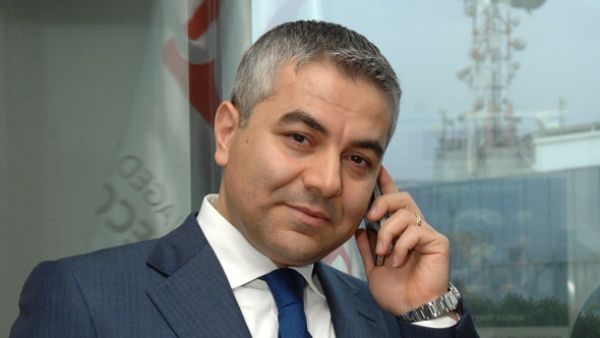The Cabinet agreed Tuesday to extend the operation licenses of touch and Alfa mobile companies for a maximum of one month to pave the way for a new tender.
Telecommunications Minister Nicolas Sehnaoui, who informed Cabinet that the temporary licenses for both companies would expire at the end of this month, said two options were on the table afterward: either allow the Telecommunications Ministry to operate the networks for three months or extend the contracts with the two current companies for three more months.
Sehnaoui and the government plan to invite the current companies and other international firms to bid for new contracts to operate the state-owned cellular networks for five years.
According to the current contracts, both touch and Alfa operate the networks on behalf of the state in return for a monthly fee. The contracts are renewed once a year.
The chairman of touch, Claude Bassil, told The Daily Star that touch’s Kuwait-based parent company Zain has not yet decided whether to participate in the upcoming bidding.
“I am waiting for the instructions of Zain before taking part in the new tender,” Bassil explained.
Sehnaoui’s plan involves merging the state-owned mobile network infrastructures of the existing operators, touch and Alfa, into a single platform and then licensing three to five private firms to operate as Mobile Virtual Network Operators that offer retail services to customers.
The plan also calls for government ownership of the single network infrastructure, with the possibility of floating a stake of up to 3 percent on the market.
Bassil told The Daily Star he had heard about Sehnaoui’s plan through the media and had not been informed of it directly by the minister.
London-based risk analysis company Business Monitor International said the new proposal by the Telecommunications Ministry to restructure Lebanon’s mobile phone sector would kill any chance to privatize the cellular network in the future.
“The Telecommunications [Ministry’s] proposed structure for Lebanon’s mobile phone sector would meet the government’s revenue targets but is not likely to stimulate innovation or raise the usage of telecoms.”
BMI pointed out that the new model ignored the fundamental need for private investment and competition at the network operator level, even though it allowed competition between the MVNOs at the retail level.
The government heavily depends on cellular network revenues to reduce the country’s budget deficit.
Last year, the telecoms sector generated $1.6 billion in revenues, of which $1.4 billion went to the treasury.
There are more than 3 million mobile subscribers in Lebanon and penetration is expected to reach 100 percent within a few years.
The government Tuesday authorized Sehnaoui to sign the purchasing share of Alexandros fiber optic marine cable, which has a capacity of 700 gb/s and stretches between Cyprus and Egypt, and Cyprus and France.
The new cable should boost the Internet speed in Lebanon and guarantee that there won’t be a breakdown in the connection in the future.
The minister also announced a series of plans to upgrade Internet speed and install more fiber optic cables across Lebanon.
(The Daily Star :: Lebanon News :: http://www.dailystar.com.lb)








